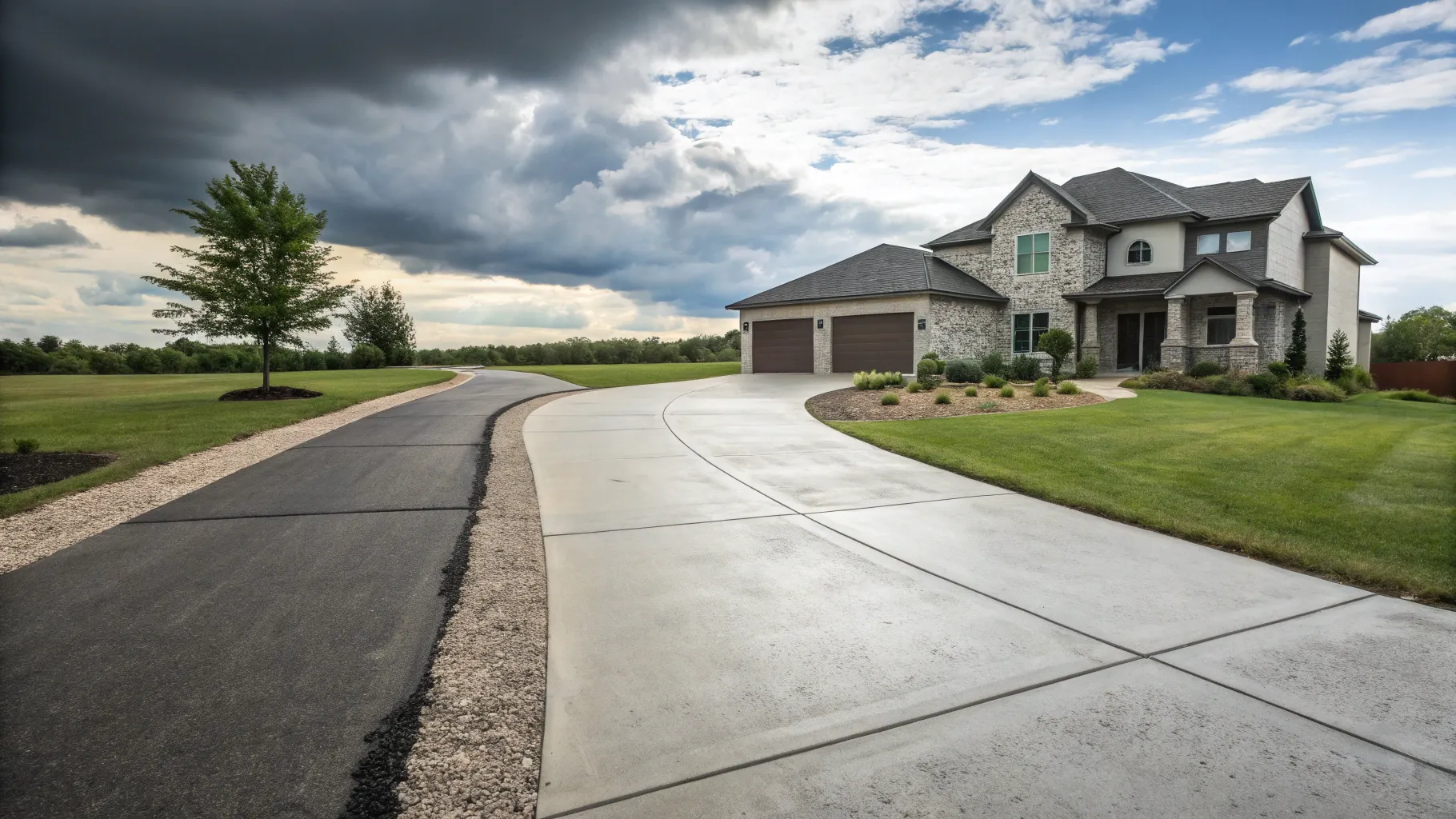Homeowners face essential decisions when installing or replacing driveways, with concrete and asphalt representing the two most common material options. Recent comparisons reveal that concrete driveways command a higher initial price point than their asphalt counterparts, though concrete’s superior longevity may offset this cost difference.
The choice between these materials often comes down to two primary factors: budget constraints and local climate conditions. While the upfront investment differs significantly, the long-term value proposition requires careful consideration of regional weather patterns and maintenance requirements.
Cost Comparison and Durability
Concrete driveways typically require a larger initial investment compared to asphalt installations. This price difference reflects concrete’s composition, installation complexity, and material costs. However, concrete’s durability advantage means homeowners may recoup this investment over time through extended service life.
Industry experts note that properly installed concrete driveways can last 30-40 years, while asphalt driveways generally require replacement after 15-20 years. This longevity factor becomes crucial when calculating the true lifetime cost of driveway materials.
Climate Considerations
Temperature fluctuations play a decisive role in determining the optimal driveway material for specific regions. Concrete demonstrates superior performance in hot climates, maintaining structural integrity even during extended heat waves. The material’s light color also reflects sunlight, reducing heat absorption and preventing softening during summer months.
Conversely, asphalt performs better in cold-weather environments. Its flexibility allows it to expand and contract with freezing and thawing cycles without developing the cracks commonly seen in concrete during winter months. Additionally, snow and ice removal proves easier on asphalt surfaces, as they absorb heat more readily, accelerating melting.
Regional contractors report that homeowners in southern states increasingly select concrete for its heat resistance, while northern residents often prefer asphalt for its cold-weather advantages.
Maintenance Requirements
Maintenance needs differ substantially between these driveway options. Concrete requires minimal upkeep beyond occasional cleaning and sealing every few years to prevent staining. However, when concrete does crack or deteriorate, repairs often appear more noticeable and can be costly.
Asphalt requires regular maintenance, including sealcoating every 3-5 years, to prevent oxidation and surface deterioration. Despite this higher maintenance schedule, asphalt repairs tend to be less expensive and blend more seamlessly with the existing surface.
Key maintenance considerations include:
- Concrete: Minimal regular maintenance but higher repair costs
- Asphalt: Regular sealcoating required but more affordable repairs
- Both materials: Proper installation significantly impacts longevity
For homeowners weighing these options, local climate conditions should heavily influence the decision-making process. Those in regions experiencing extreme temperature swings throughout the year face particularly challenging choices, as neither material performs optimally across all weather conditions.
The decision ultimately requires balancing immediate budget constraints against long-term value, while accounting for the specific climate challenges of the installation location. Consulting with local contractors familiar with regional weather patterns can provide valuable insights into which material will deliver the best performance for a specific property.







